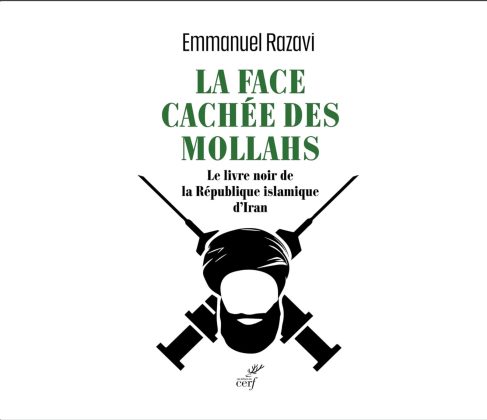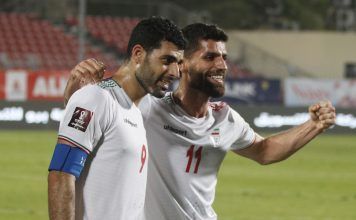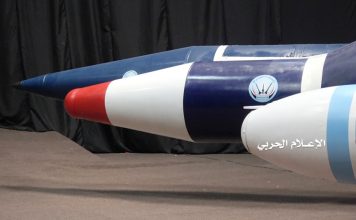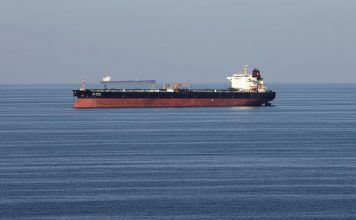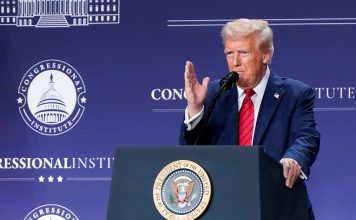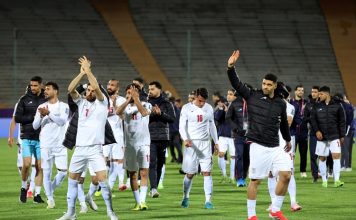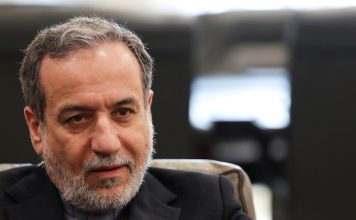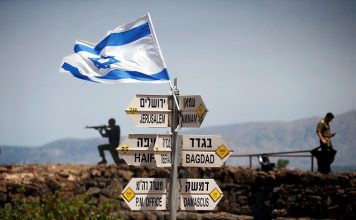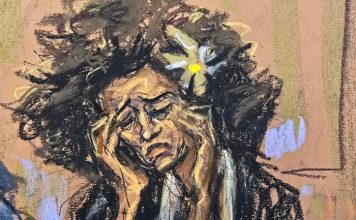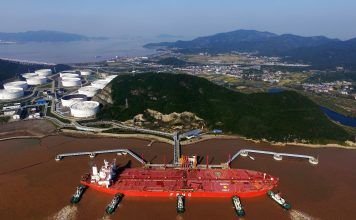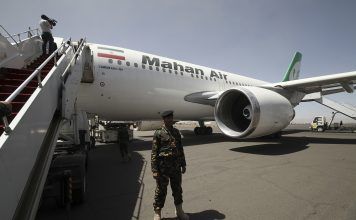“You have targeted ‘dangerous’ individuals who resort to killing and kidnapping their opponents and journalists whenever it benefits them. Even in France, it’s wise to refrain from disclosing your address or personal details to strangers.”
This was the stark advice given to author and journalist Emmanuel Razavi — after he published one of his investigations into the Islamic Revolutionary Guard Corps (IRGC) — by an official from the French domestic intelligence service, the Direction Générale de la Sécurité Intérieure (DGSI).
For nearly 30 years, Razavi has been covering the Middle East for French and international media — Paris Match, Politique Internationale, Le Spectacle du Monde, and Valeurs Actuelles. He is the author of 10 books, and his documentaries have been broadcast on channels such as Arte, France 3, France 24, M6, and Radio Canada.
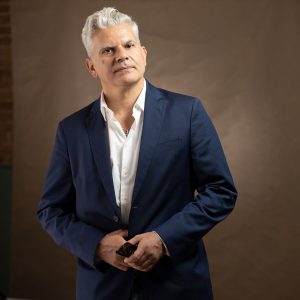
Razavi has repeatedly crossed paths with the IRGC while investigating their secret operations. He also covered the ´Woman Life Freedom’ protests in 2022 extensively, interviewing key players inside and outside Iran.
Razavi has now published his investigations as a book titled La Face cachée des Mollahs: Le livre noir de la république islamique (“The Mullahs’ Hidden Face: The Black Book of the Islamic Republic of Iran”).
In it, he traces the ideological history of the Islamic Republic from its inception to the present day, and its transformation into what he describes as a criminal organization. The book includes interviews with Crown Prince Reza Pahlavi in addition to secret agents, pilots and smugglers, Kurdish fighters, human rights lawyers, and victims of the Islamic Republic.
Razavi recently joined an independent commission investigating the infiltration of the Islamic Republic of Iran in France. The commission — composed of researchers, journalists, and Middle East and Iran experts — was established by Gilles Platret, the Mayor of Chalon-sur-Saône and Regional Councilor of Burgundy and Franche-Comté.
Kayhan Life recently interviewed Razavi about his book and his investigations.
How long have you been on the trail of the IRGC?
The first time I came face to face with the Revolutionary Guards was in 1996, in southern Lebanon, in the Nakoura region. I was a young journalist. In one of the villages I was walking through, I was surprised to hear men speaking Persian. I was then told that they were officers from the Islamic Revolutionary Guard Corps who were supervising Hezbollah militiamen. From then on, I began to take an interest in the links between Hezbollah and Tehran.
It was also during this period that I received my first death threats. Contrary to what one might believe, the threats came from a French personality who was close to Hezbollah and Tehran.
Your sources in the book are very knowledgeable about how Islamic Republic agents operate in France, and how the IRGC launders its profits from arms sales and drug trafficking. What are your findings?
The Revolutionary Guard Corps is a mafia cartel which, together with Hezbollah and even individuals linked to the Iranian reform movement, is involved in arms and drug trafficking on an international scale. For example, they are responsible for 20 percent of the world’s cocaine trafficking. They also bring captagon, a synthetic drug, into Europe. In short, they are merchants of death, in Iran as well as in Europe.
In terms of the arms trade, some of the assault rifles and rocket launchers supplied by Tehran to the Houthis in Yemen are then resold by the latter to Daesh. I understood during my investigations that the Islamic Republic was a mafia cartel. And I speak my mind when I say: Ali Khamenei is the equivalent of Don Corleone in Tehran. He is a mafia boss who uses religion to build his fortune.
The West has been aware of this reality for a long time. Why have they allowed it to continue and not stopped it, in your opinion?
Yes! Everyone knows. What struck me the most when I investigated is that the American, French, British and Israeli secret services have for years been documenting the mafia dimension of the Revolutionary Guards and the Islamic Republic of Iran, as well as their direct relations with the Colombian, Venezuelan, Paraguayan, etc. mafias. However, neither Europe nor the United States have had the courage to bring down the mullahs’ regime, even though it is a terrorist narco-state. The reason for this is that the influence of pro-Iranian lobbies is very important within the European Parliament, as in Washington. That is why no one wants to attack the Mullahs.
You recently interviewed Matthieu Ghadiri, a Frenchman of Iranian origin working for French counter-espionage, when the Iranian secret services tried to recruit him to spy on and influence figures in the Socialist Party. Why politicians on the Left?
What this former French counter-espionage agent, considered a hero by his superiors, explained to me is that the Iranian secret services believed that in order to gain influence in France, but also throughout Europe, it was necessary to exploit the Palestinian issue. Since the left-wing parties were the most sensitive to that subject, it was easier to infiltrate them and manipulate them. For the regime in Tehran, exploiting the Palestinian issue also allowed it to create chaos in universities and divisions in French society. Tehran’s objective: to put pressure on France so that France, in turn, exerts pressure on Israel and asks it to withdraw its troops from Gaza and Lebanon.
Did your investigations not indicate the infiltration of other French parties?
What I noticed is that the French Communist Party and opposition leader Jean-Luc Mélenchon’s France Insoumise were really the targets of the influence and manipulation of the Islamic Republic of Iran. We have also seen people from the extreme right grow closer to Tehran, such as Jean-Marie Le Pen, but this remains a very marginal phenomenon in France.
Matthieu Ghadiri maintains that until 2016, the Islamic Revolutionary Guards operated mainly inside Iran. Their priority was counter-espionage and hunting down opponents. How did it change after 2016, and why?
According to him, until 2016, the Islamic Revolutionary Guards Corps operated mainly inside Iran. Territories outside Iran were the preserve of the Ministry of Information agents. From 2016 onwards, meaning some time after the Vienna nuclear deal with Iran, they began to take an interest in foreign countries. Their hierarchy realized that their counterparts in the Ministry of Information services were very effective outside of Iran.
At the same time, the mullahs understood that the latter were not telling them everything in their reports. That is how the Revolutionary Guards took over part of their mission. At that point, they decided to recruit agents of different nationalities who lived abroad. Among them were Iranian dual nationals – they could be students, lawyers or doctors — who were perfectly integrated in their adopted countries.
What Matthieu Ghadiri also explained was that among these foreigners, the Iranian secret services sometimes found a person who had the potential to rise through the political ranks and become an important figure in their country. In that case, they invested in them for the long term. I speak in the past tense when quoting Matthieu Ghadiri, but this still continues today in France.
What is the relationship between the Islamic Republic’s intelligence services and the Russians?
In February 1979, during Yasser Arafat’s visit to Tehran, the latter proposed to Khomeini to set up an intelligence service with the technical and financial help of the Syrians, who themselves benefited from Soviet advice. Khomeini, who was a dangerous madman, was nevertheless also a pragmatist. He therefore decided to work directly with the Russians. From that moment on, the Russian secret services trained the Iranian services. Even today, Russians train Iranian spies in cyberwarfare and influence techniques. They sometimes coordinate destabilization actions in Europe.
According to one of the specialists you interviewed in your book, “France can do nothing to help the Iranian opposition, even if it has a certain number of hopes on it. If it moves, the Quai d’Orsay fears that it will harm our nationals held prisoner in Iran. And our services are afraid, as far as they are concerned, that we will find bombs in Paris.” Do you agree with these fears? Or has the atmosphere changed?
For the most part, French diplomats do not understand Iran. They analyze what is happening there as if it were an Arab country, which is obviously stupid. This comes from the fact that there are few specialists on Iran in France, and that the majority of them are experts from the Arab world who advise the Quai d’Orsay on the subject. These people are generally very favorable to the Iranian Reformists, who I explained in my book were mafiosi. Our diplomats are also, very often, supporters of the Palestinian cause, deeply anti-Israeli. Add to that the fear of terrorist attacks, and you will understand why France is overwhelmed by what is happening in Iran.
You are joining an independent fact-finding commission on the infiltration of the Islamic Republic of Iran in France. Can you explain the remit of this commission and what it hopes to achieve?
This independent commission of inquiry will produce a report on the infiltration of the Islamic Republic of Iran, particularly within French institutions. This report, which brings together around ten experts, will be supervised by Gilles Platret, a French elected official. It will be submitted to the Minister of the Interior, Bruneau Retailleau, in March 2025, as well as to the President of the National Assembly and the President of the Senate.
What motivates you to conduct investigations on Iran and to write about the country?
My mother is French, and my father, who recently passed away, was Iranian. Their marriage was a beautiful love story. So I grew up in both cultures, and I have as much passion for Chateaubriand as I do for Omar Khayyam.
As a child, I spent very long holidays in Iran, with my grandparents, between Tehran and the Caspian Sea. I was as at home in Iran as I was in France. I was very close to my cousins, especially one of them, who was a diplomat, and who introduced me to Iranian culture.
From my adolescence, I also read books by Fereydoon Hoveyda, and later, by Houchang Nahavandi. I was only 15 or 16 years old, and I was passionate about it. Meanwhile, my father introduced me to the books of Joseph Kessel, who was a great French journalist. My mother also made me read Hemingway. In other words, I am as much the product of a French culture as an Iranian one. To paraphrase the French writer Romain Gary, both countries flow through my veins.
But I must be honest: seeing the expression on my father’s face when he found out about the assassinations of members of our family during the 1979 Islamic revolution marked me forever. He who loved French culture so much, was revolted by what then French President Valery Giscard d’Estaing did, and by what intellectuals like Jean-Paul Sartre who supported Khomeini said. I must admit that while I of course became a journalist out of a taste for adventure and risk, it was also to seek out the truth. So many falsehoods were said about Iran at the time. The time has come to stand up to disinformation about Iran.
ANALYSIS: Who Are the Men Serving in Iran’s IRGC, Basij, and Police Forces?

